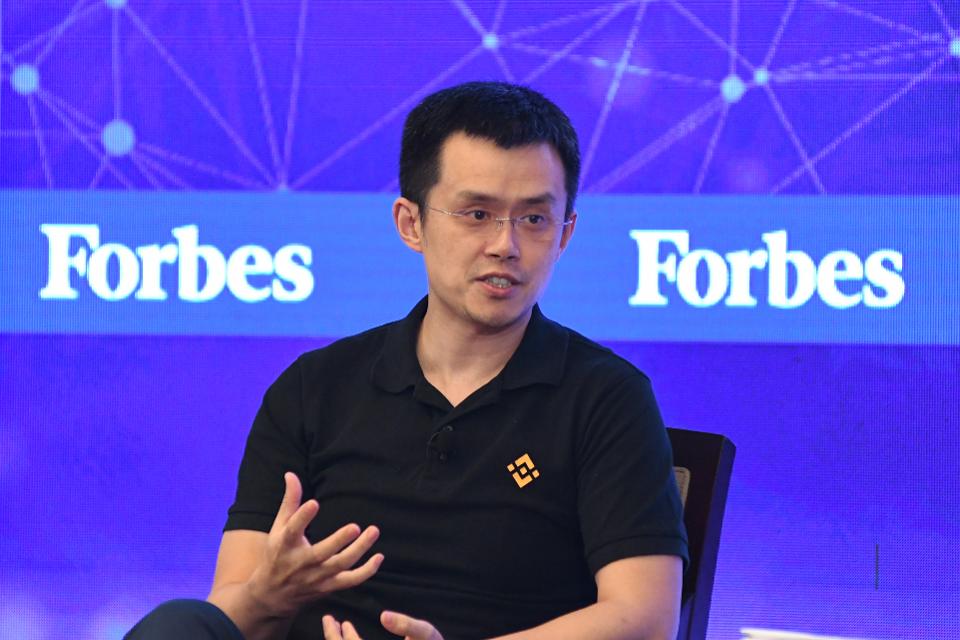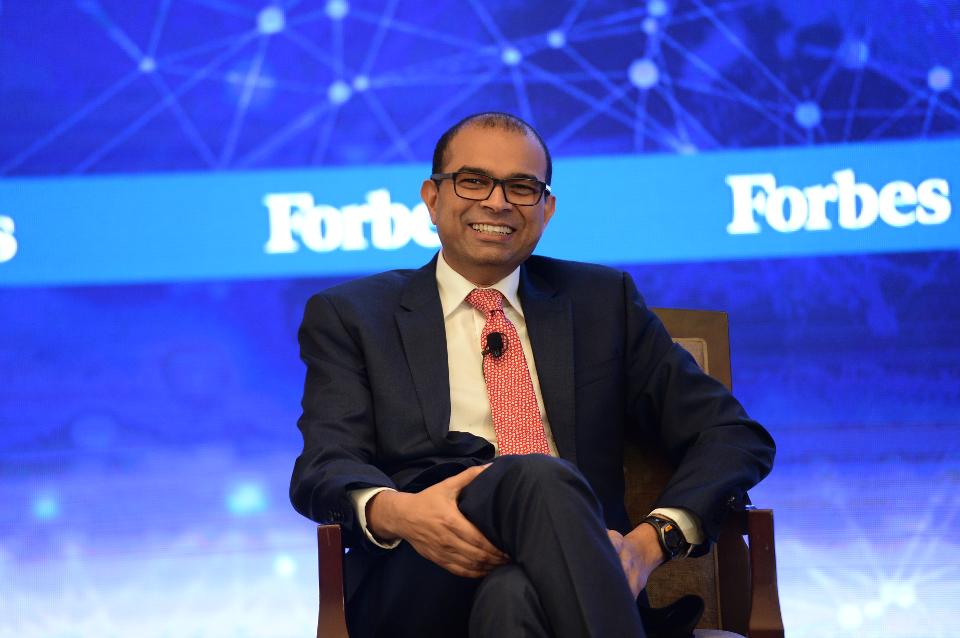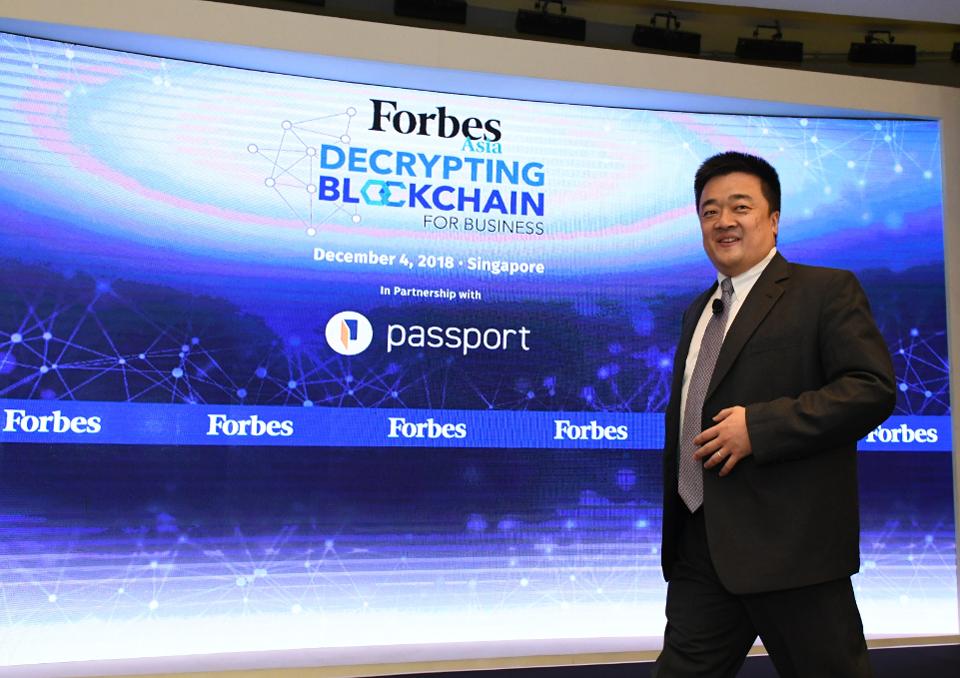亞洲最富有家族聚集學習區(qū)塊鏈業(yè)務

Binance CEO Zhao Changpeng addresses a room filled with Asian family investors.FORBESASIA
One hundred thirty of Asia’s wealthiest and most influential people gathered in Singapore today to delve into the finer points of blockchain. The group of entrepreneurs, investors and families would have fit in just fine among the cast of Crazy Rich Asians, a recent feel good film that places Singapore's elite in some of the world's most extravagant settings, and is also set in Singapore.
What brought the investors together was a small group of some of the most influential crypto leaders in Asia and the world, speaking frankly on stage at an invitation-only event hosted by Forbes Asia, called “Decrypting Blockchain for Business.”
Set against a backdrop of the cryptocurrency industry’s value meltdown, which has seen the collective market cap drop of 47% over the past three months, the mood in the packed room was a far cry from the fanatical events the industry became known for in 2017, during one of the largest bull markets in history.
Instead, the audience, comprising sage, old grandparents as well as their innovative young grandchildren, was marked by calm, persistent note taking and more measured analysis. Anderson Tanoto, director of the $18 billion Royal Golden Eagle (RGE) manufacturing conglomerate positioned his interest in blockchain during a fireside chat on stage.
“There are two herds of people in blockchain. Those who want to get rich off crypto, and those who want to change the world with blockchain. I would like to associate myself with the second group.”
Tanoto is the son of Sukanto Tanoto, who founded RGE 50 years ago. As part of the younger Tanoto's exploration of blockchain, which was first popularized as the distributed ledger technology that powers bitcoin, he helped launch the Sustainability Assurance & Innovation Alliance (SUSTAIN) to move RGE’s vast palm oil supply chain to a blockchain.
The consortium of oil palm growers, palm oil processors and consumer goods manufacturers aims to move half the world’s palm oil supply chain to a shared, distributed ledger within the next two years, Tanoto said. Not only does he hope the investment will increase transparency in the supply chain, but he hopes it will remove unnecessary middlemen.
Other non- cryptocurrency applications of blockchain on display at the event were presented by Janil Puthucheary, Singapore’s senior minister of state at the ministry of communications and information and the ministry of transport.

Janil Puthucheary, Singapore’s senior minister of state at the ministry of communications and information and the ministry of transport, on stage at Decrypting Blockchain for Business, hosted by Forbes Asia.FORBESASIA
Puthucheary helps oversee Singapore’s government technology research and is a driving force behind the nation’s Smart Nation initiative to incorporate blockchain and other technologies into its infrastructure.
Specifically, Puthucheary listed several government projects exploring the use of blockchain to track goods on a supply chain, and to automate the payment of health insurance coverage if, for example, a patient is diagnosed with diabetes.
Puthucheary also highlighted the work of the Monetary Authority of Singapore to explore ways that blockchain can interoperate with the central bank’s existing financial infrastructure. But the minister also cautioned the audience of family offices and others against the limits of blockchain.
As part of Singapore’s blockchain work Puthucheary said the nation’s cybersecurity team was working across government offices to strike a balance between the potential benefits of using encrypted ledgers to track resources, and “human error” that can potentially introduce vulnerabilities.
“Blockchain is not inherently secure, by itself,” said Puthucheary . “No tech is. But it does have some properties that could ensure a higher degree of securities with few resources.”

BTCC cofounder Bobby Lee discusses the future of cryptocurrency investment.FORBESASIA
Other notable speakers at the event included the founder of China bitcoin exchange BTCC, Bobby Lee; the executive vice president and head of technology for the Singapore Exchange (SGX), Tinku Gupta; and Jehan Chu, cofounder and managing partner of blockchain development firm Kenetic.
While much of the event’s agenda focused on non-cryptocurrency applications of blockchain, a significant portion was still dedicated to cryptocurrency, in spite of the massive market downturn.
During a sprawling conversation about cryptocurrency with Forbes senior reporter, Pamela Ambler, the cofounder and CEO of crypto currency exchange Binance, Zhao Changpeng, better known as CZ, talked about his company’s future plans and what he hopes will finally make cryptocurrency mainstream.
Specifically, CZ discussed his company’s plans to create its own blockchain, called Binance Chain, that would enable the creation of new currencies and facilitate ICOs similar to ethereum. In spite of the new plans though, it is an old vision for cryptocurrency that CZ says he hopes might finally lead to global adoption.
“Fundamentally, I would like to see payment adoption increase,” said CZ. “That’s the original intent, but for some reason that’s not taking off, so we’re pushing really hard into that space.”
During a direct address on the current state of blockchain, Bloq cofounder and chairman, Matthew Roszak, framed the overall investment opportunity he says he sees in the space.
“Hype is turning into pragmatism, but we see the momentum there,” Roszak said of the struggling cryptocurrency market prices. “This is a good time when we see these lulls to think about your strategy and your approach to the space.”
I report on how blockchain and cryptocurrencies are being adopted by enterprises and the broader business community. My coverage includes the use of cryptocurrencies such as Bitcoin, Ethereum and Ripple, and extends to non-cryptocurrency applications of blockchain in finance...
